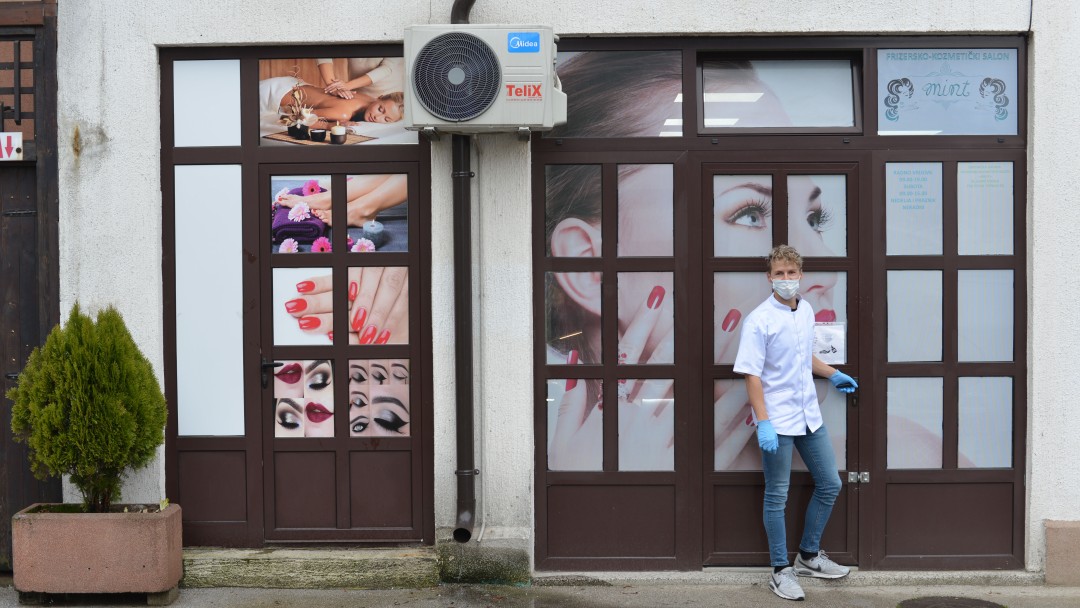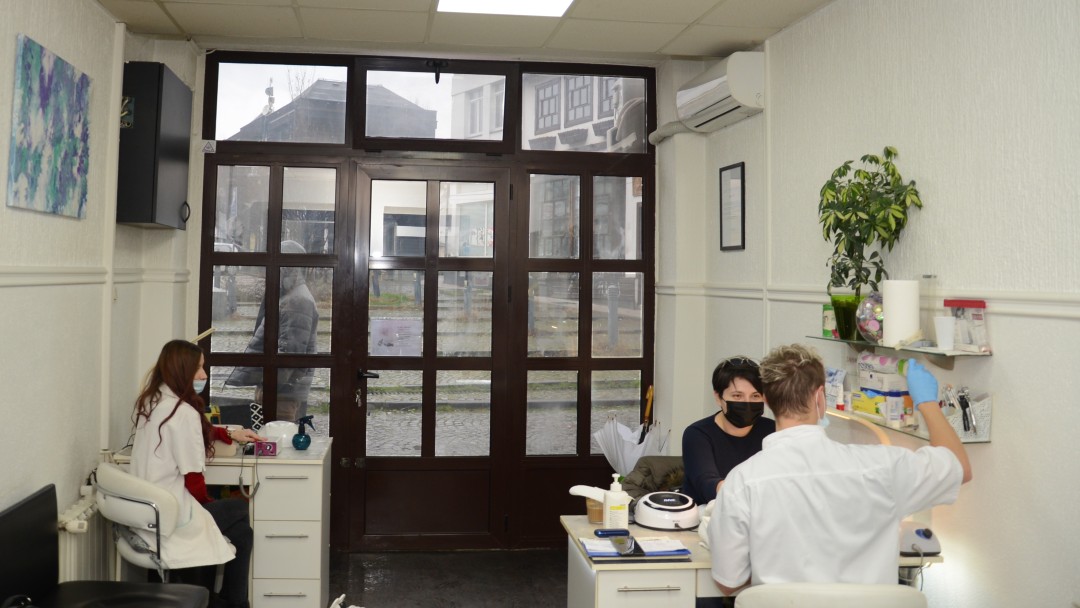News from 2021-01-18 / KfW Development Bank
Bosnia and Herzegovina is also getting prepared for the time after Corona

Emergency aid, bridging aid, November and December aid - government support for the shaken German economy and the conditions under which it is provided dominate the political debate. But governments in Europe's poorer countries in particular also have to make great efforts to set the course for the smoothest possible economic future beyond the current pandemic response. KfW Development Bank is helping with this by a grant of EUR 5 million for micro, small and medium-sized enterprises in Bosnia and Herzegovina provided on behalf of the German Federal Ministry for Economic Cooperation and Development (BMZ) last autumn.
In this small country in the Western Balkans, the consequences of the devastating war in Yugoslavia can still be felt today, and this already means that there is a great need to catch up economically. KfW's assistance, which comes practically on Europe's doorstep, is intended to ensure the survival of small and medium-sized enterprises, which are so important to the national economy, beyond the crisis. They are particularly affected by the lockdown, hygiene requirements and the collapse in demand - and with them countless people and families who are losing their livelihoods due to the loss of jobs. They cannot count on significant state support: the social security systems are rather weak.
The urgent need for help was promptly demonstrated. Before the end of the year, the entire programme funds could be disbursed to ailing companies. The money, which was placed with two microfinance institutions through a fund managed by KfW, was disbursed in the form of interest- and fee-free loans after the applications had been reviewed. As a result, almost 1,700 small entrepreneurs received aid amounting to an average of EUR 3,000 to cover ongoing operating costs and maintain their business activities.
One of them is Nikola Lukač, who runs a hairdressing and beauty salon with three employees in Tuzla. Due to the closure of beauty salons and hairdressing shops, his sales dropped quite significantly. And when he was allowed to reopen, business was slow to start up again because there were still exit and contact restrictions. He used the loan of the equivalent of almost EUR 4,100, which he received thanks to Corona aid, to cover his operating costs. "The money came at just the right time for me," he says with relief.

With almost 40% of the loans granted, service businesses like Nikola Lukač's have benefited considerably from the support - which is not surprising, since personal contact with customers plays an essential role here. But agriculture, manufacturing and trade businesses were also supported with amounts of around EUR 3,000 each. "Compared to the maximum limits for microfinance loans of up to EUR 25,000 permitted in the country, this seems almost modest," says Dr Bianca Clausen, team leader at KfW Development Bank's South Eastern Europe division. "But it is precisely the large number of beneficiary enterprises that has made it possible to have a broad impact. And women who run a business could also be taken into account to a considerable extent."
But German aid not only strengthens small and medium-sized enterprises and secures economic activity in upstream and downstream sectors as well. It improves the living conditions of many people who would otherwise slip into poverty through unemployment and creates the basis for things to improve again in the future. In fact, the microfinance institutions, which had already implemented a similar programme of the German Federal Government in 2014 as part of a flood relief measure, also benefit from the partnership: they welcome the enhanced resilience of their clients in the MSME segment, which are now less threatened by payment difficulties or insolvency. Good reasons for a further phase of the programme in the current year, which is presently being prepared.

Share page
To share the content of this page with your network, click on one of the icons below.
Note on data protection: When you share content, your personal data is transferred to the selected network.
Data protection
Alternatively, you can also copy the short link: https://www.kfw-entwicklungsbank.de/s/enzBWrMC.CZVA
Copy link Link copied